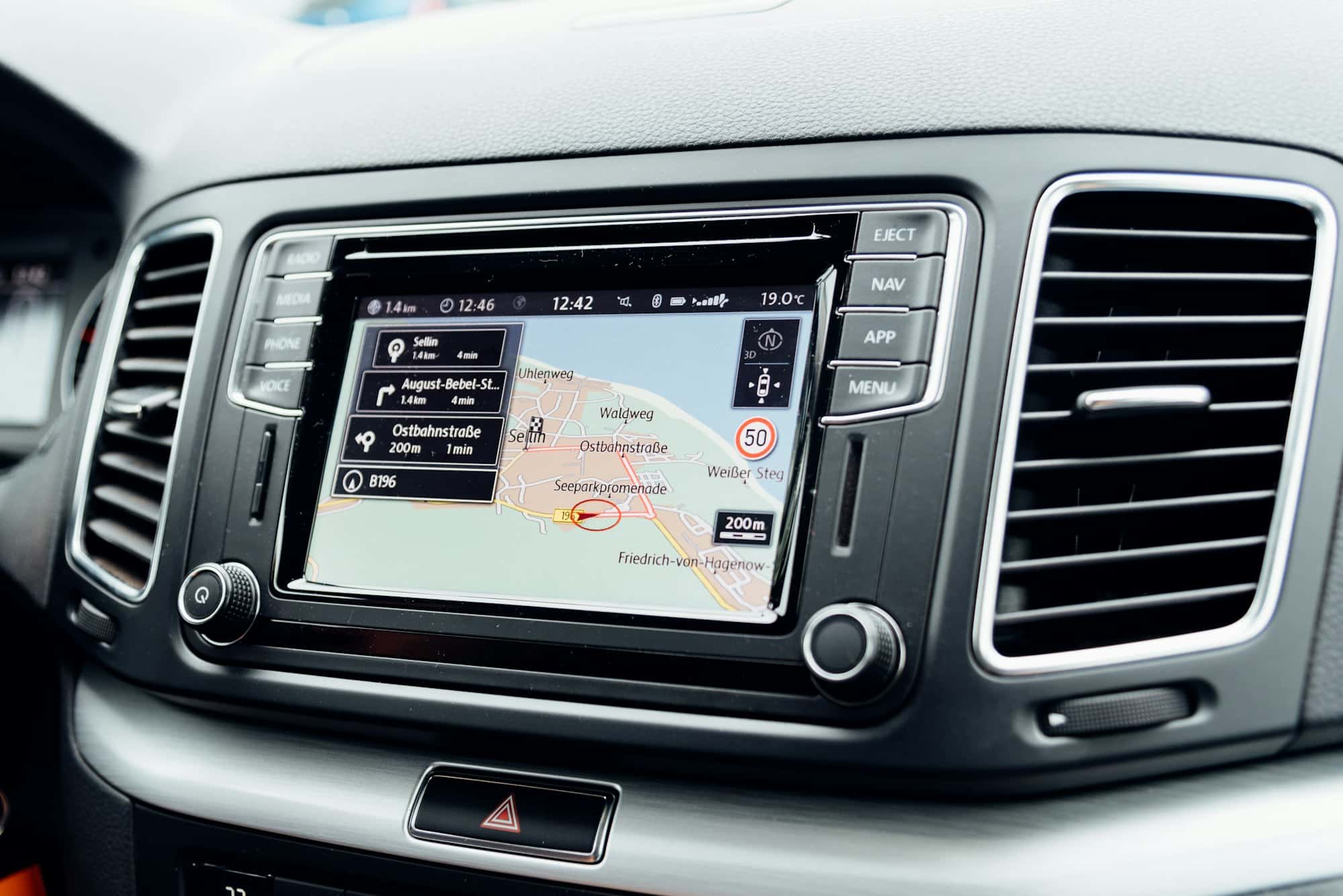In this digital era, where technology is transforming various aspects of businesses, the importance of real-time tracking systems cannot be overstated. Fleet management has been significantly improved by GPS vehicle tracking systems. Various operations that were once arduous and time-consuming can now be done efficiently and effectively, thanks to the sophistication of this technology. From monitoring vehicle movements to planning efficient routes, these systems are a game-changer in the industry. This article will delve into the intricate details of how advanced GPS vehicle tracking systems can enhance security and fleet management.
Unpacking the Essentials of GPS Vehicle Tracking Systems
Imagine a world where you could monitor your entire fleet from the comfort of your office, or even better, from your mobile device. Well, that’s no longer a dream thanks to GPS vehicle tracking systems. These systems use GPS technology to track the exact location of a vehicle in real-time. They collect data from the vehicle and send it to a central system, where managers can analyze the data and make informed decisions.
Have you seen this : Can You Improve Your Vehicle’s Resale Value with Professional Engine Bay Detailing?
GPS fleet tracking systems have become an essential tool for many businesses that rely on vehicle operations. They not only provide real-time location data but also monitor driver behavior, fuel consumption, and vehicle maintenance needs. This real-time data gives fleet managers the ability to make quick decisions that can improve efficiency and reduce costs.
Enhancing Fleet Security with GPS Tracking
Security is a top priority for any fleet manager. With GPS vehicle tracking systems, you have a virtual eye on every vehicle in your fleet, providing an enhanced layer of security. These systems can monitor the exact location of vehicles at all times, ensuring that they are safe and on their designated routes.
Also to discover : How to Choose the Best Performance Brake Caliper Paint for Aesthetics and Heat Resistance?
In case of an emergency or theft, the real-time tracking feature can assist in the swift recovery of the vehicle. The system can provide exact coordinates, making it easy for law enforcement to locate the vehicle. Additionally, some advanced systems can remotely disable the vehicle, making it impossible for thieves to drive away.
Another security feature offered by these systems is geo-fencing. This allows managers to set up virtual boundaries for their vehicles. If a vehicle crosses these boundaries, the system triggers an alert, notifying the manager of the potential security threat.
Leveraging GPS Systems for Effective Fleet Management
Effective fleet management is crucial for the profitability and efficiency of businesses. GPS vehicle tracking systems offer numerous features that aid in this aspect. They provide data on driver behavior, which can be used to improve safety and efficiency. By monitoring speeding, harsh braking, and other risky driving behaviors, managers can identify drivers who need further training or discipline.
GPS tracking systems also help in planning efficient routes for vehicles. By studying real-time traffic data, managers can identify the fastest and most fuel-efficient routes, thereby saving time and reducing fuel costs. The system can also help in scheduling vehicle maintenance, based on the vehicle’s mileage and usage, to avoid breakdowns and improve the vehicle’s lifespan.
Reducing Operational Costs with GPS Tracking
Another significant benefit of GPS vehicle tracking systems is the potential for cost savings. The data collected by these systems can help businesses significantly reduce their operational costs. For instance, by monitoring fuel consumption, managers can identify ways to improve fuel efficiency, such as reducing idle time and optimizing routes.
The system can also help in reducing maintenance costs. Regular maintenance is essential for any vehicle, but it can be costly if not planned properly. With real-time data on vehicle usage and condition, managers can schedule preventive maintenance, preventing costly repairs and downtime.
Moreover, GPS tracking systems can reduce insurance premiums. Many insurance companies offer discounted premiums for fleets equipped with GPS tracking systems due to the increased security and reduced risk of theft.
Streamlining Business Operations with GPS Tracking
Beyond fleet management and security, GPS vehicle tracking systems can also streamline overall business operations. The real-time data provided by these systems can be used to improve customer service. For example, by tracking the exact location of delivery vehicles, businesses can provide accurate delivery times to customers.
Additionally, the data collected can aid in compliance with regulations. Many industries have strict rules regarding driver hours, vehicle maintenance, and safety. GPS tracking systems can provide the necessary data to ensure compliance with these regulations, avoiding potential fines and penalties.
In conclusion, GPS vehicle tracking systems are transforming the way businesses manage their fleets. They not only enhance security but also improve fleet management, reduce costs, and streamline overall operations. It’s a technology that’s here to stay, and any business that depends on vehicle operations can benefit from it. With such a system in place, you can focus on growing your business while the technology takes care of your fleet.
The Intricacies Of Real-Time Data Collection Through GPS Technology
GPS vehicle tracking systems have revolutionized the way businesses manage their fleets. These tracking systems are adept at collecting real-time data about vehicles’ locations, their speed, fuel consumption, and trip length, offering fleet managers a comprehensive view of their fleet operations. This wealth of information is constantly being updated, enabling managers to make swift and informed decisions.
Real-time tracking systems use GPS technology to provide the precise location of a vehicle at any given moment. The GPS trackers installed in the vehicles continually send data to the central system. This data includes crucial insights like driving speed, engine idle time, and route information, providing managers with a complete picture of driver behavior and vehicle performance.
These systems also help in tracking fuel consumption. By monitoring the fuel levels in real-time, fleet managers can identify patterns and possible inefficiencies. For example, if a vehicle is consuming more fuel than usual, it might indicate a mechanical issue that needs attention. Similarly, if a driver is frequently leaving the engine idle, it could be leading to unnecessary fuel wastage.
Moreover, the real-time data from these tracking devices also aids in proactive vehicle maintenance. The system can alert managers about upcoming service milestones based on the vehicle’s usage, preventing potential breakdowns and extending the vehicle’s lifespan.
Improving Customer Satisfaction With Advanced GPS Tracking Solutions
The capabilities of advanced GPS vehicle tracking systems go beyond just fleet management and security. They also play a significant role in enhancing customer satisfaction. By providing precise, real-time information about delivery times and locations, these systems can significantly improve the customer experience.
Customers today expect timely and accurate updates about their deliveries. GPS tracking solutions can meet these expectations by providing real-time tracking of delivery vehicles. Customers can know exactly when their delivery will arrive, reducing the anxiety of waiting and uncertainty. This transparency can significantly enhance customer satisfaction and loyalty.
Furthermore, these tracking systems also enable businesses to respond quickly to customer inquiries. For instance, if a customer calls to inquire about a delay, the customer service team can use the real-time data from the tracking system to provide an accurate update.
GPS tracking systems also contribute to customer satisfaction indirectly by improving overall fleet efficiency. With optimized routes and reduced idle time, deliveries can be made faster. Also, with proactive vehicle maintenance, the risk of delivery delays due to vehicle breakdowns is significantly reduced.
Conclusion
In today’s fast-paced and technology-driven world, advanced GPS vehicle tracking systems have emerged as a vital tool for businesses. From enhancing fleet management and security to reducing operational costs and improving customer satisfaction, these systems provide immense benefits.
They offer real-time visibility of fleet operations, allowing for quick decision-making and enhanced efficiency. They contribute to cost savings by optimizing fuel consumption and facilitating proactive vehicle maintenance. Furthermore, they improve customer satisfaction by providing accurate delivery updates and improving the overall efficiency of the delivery process.
As technology continues to evolve, we can expect GPS vehicle tracking systems to become even more sophisticated and integral to business operations. Businesses that rely on vehicle operations would do well to adopt these systems, not just as a means of keeping up with the times, but as a strategic move towards greater profitability and success.











